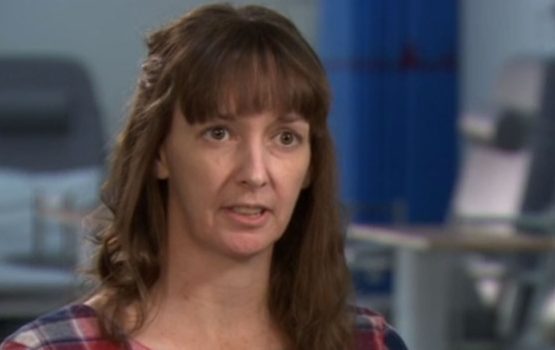
An Ebola-busting phone app is being developed by a team of technology experts with a proven track record of helping people in West Africa.
Craig Taylor has already helped millions of African farmers with an app that helps with veterinary problems.
Now he’s looking to adapt the technology to come up with a device that will aid the fight against the deadly disease.
He said: “There’s an opportunity to play our part in stopping the spread of Ebola.”
His company Cojengo developed its VetAfrica app to help livestock owners and vets diagnose potential diseases in their animals and source drugs.
Now, Craig and his colleagues are looking to adapt their invention to help track and treat Ebola the virus that almost killed British nurse Pauline Cafferkey.
It’s hoped the app could help map the disease and inform people of symptoms to look out for as well as teaching them how to avoid spreading it.
Craig, who created Cojengo with three fellow Strathclyde University computing science graduates, said: “We are looking at how people can use mobiles to share information.
“For example, if there is an outbreak in one village how they would alert others nearby. We could also use it as an educational tool to prevent the spread of Ebola.
“It could give them information about precautionary measures to take and about how to seek treatment if they think they do have it.”
Craig developed VetAfrica with help from computer giant Microsoft which part-funded the venture as part of its 4Afrika Initiative, which aims to accelerate African innovation with support for entrepreneurial companies.
Details entered by vets and farmers are sent to a central server to help coordinate animal health issues across Africa.
Craig said the app could take a similar approach to helping medics track and battle Ebola as well as helping local communities in affected countries.
He said: “There’s a relatively high penetration of smartphones in Africa. For example, 90% of people in Kenya have a mobile phone.
“We could also use the system to alert people with mobiles that don’t have smart technology by using text messages.
“It’s still in the early stages of development. We need access to more experts in Ebola to help us get the information we need but the framework is there.”
Dr Martin Wiselka, infectious diseases consultant at University Hospitals of Leicester NHS Trust, said Conjengo’s latest idea could prove beneficial.
He said: “If it was updated regularly it would know if there were other cases nearby. It could be helpful. It’s something that could work.
“Mobile phones are quite popular in Africa. It should be tried and tested.”
More than 9,000 people have died from Ebola since the outbreak started in March last year.

Enjoy the convenience of having The Sunday Post delivered as a digital ePaper straight to your smartphone, tablet or computer.
Subscribe for only £5.49 a month and enjoy all the benefits of the printed paper as a digital replica.
Subscribe